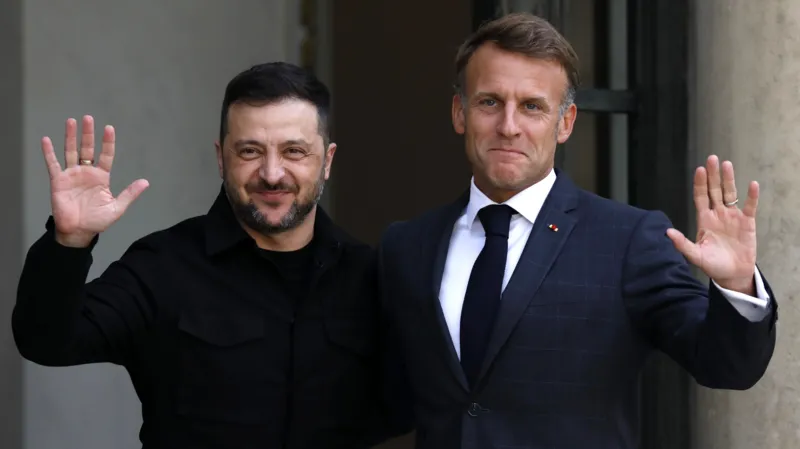The Kremlin has firmly rejected proposals that foreign troops be stationed in Ukraine as part of Western security guarantees, issuing a sharp rebuff to a pledge made earlier this week by French President Emmanuel Macron and a coalition of Western allies. Macron announced on Wednesday that 26 countries had formally committed to providing security support to Ukraine “by land, sea or air” once a ceasefire is agreed, following a summit in Paris that drew representatives from 35 nations and was dubbed the “Coalition of the Willing.” The initiative was intended to demonstrate Western unity and to assure Kyiv that its long-term security will not be left in doubt.
Russia, however, quickly moved to dismiss the idea. Kremlin spokesperson Dmitry Peskov told state media on Thursday that any such deployments would be unacceptable, declaring that foreign contingents, particularly American and European, could not be responsible for guaranteeing Ukraine’s safety. Moscow insists that if Ukraine’s security is to be assured after the war, Russia itself should serve as a guarantor, a proposal outright rejected by both Kyiv and its Western backers, who argue that any credible settlement must come with guarantees independent of Moscow’s influence. For Ukraine and its allies, a ceasefire must first be established before broader political talks about the country’s future can proceed.
Macron, supported by U.S. President Donald Trump, has been pushing for stronger and more concrete commitments to Ukraine’s defense. Trump stated this week that American involvement would “probably” include air support, citing discussions with President Volodymyr Zelensky about the urgent need for maximum protection of Ukraine’s skies. Despite this, U.S. officials have made clear that Washington has no intention of sending ground troops into Ukraine, a position echoed by several European partners who fear that such a deployment would play directly into President Vladimir Putin’s narrative of the war as a Western-led assault against Russia.
Tensions on the ground remain high even as diplomatic maneuvering continues. Macron accused Moscow on Thursday of escalating attacks despite ongoing ceasefire discussions, pointing to the deaths of two Ukrainian mine-clearance workers in a Russian strike in the country’s north. NATO Secretary-General Mark Rutte responded directly to Moscow’s objections, saying Russia has no right to dictate terms regarding Western troop deployments, stressing that Ukraine is a sovereign state free to choose its own defense arrangements. German Chancellor Friedrich Merz, while endorsing security guarantees, emphasized that securing a ceasefire in coordination with Zelensky must be the immediate priority before any permanent defense structures are established.
The United States has also pressed Europe to accelerate economic measures against Moscow. Trump urged the European Union to hasten its plan to cut imports of Russian oil and gas, arguing that choking off energy revenues is critical to weakening what he called “Russia’s war machine.” Although the EU has set 2027 as its deadline for ending dependence on Russian energy, U.S. officials note that Moscow still earned more than €1.1 billion from European energy sales last year, underscoring the ongoing challenge of undermining the Kremlin’s financial base.
Nearly four years after the launch of Russia’s full-scale invasion, Putin has publicly hinted at what he described as “a certain light at the end of the tunnel,” though he continues to reject the possibility of a temporary ceasefire. He insists that only a comprehensive peace deal will bring the war to an end. In a move widely seen as a negotiating ploy, Putin recently suggested Zelensky could travel to Moscow for direct talks, an offer Kyiv dismissed as unacceptable, maintaining that any negotiations must take place on neutral ground under international mediation.
As the Kremlin resists Western proposals, Putin has intensified his outreach to other authoritarian allies, strengthening ties with China’s Xi Jinping and North Korea’s Kim Jong Un in a bid to counterbalance Western pressure. He has warned that if no diplomatic settlement can be reached, Russia stands ready to continue pursuing its objectives by military means, underscoring the entrenched divisions and the uncertain path ahead for Ukraine’s future security.



